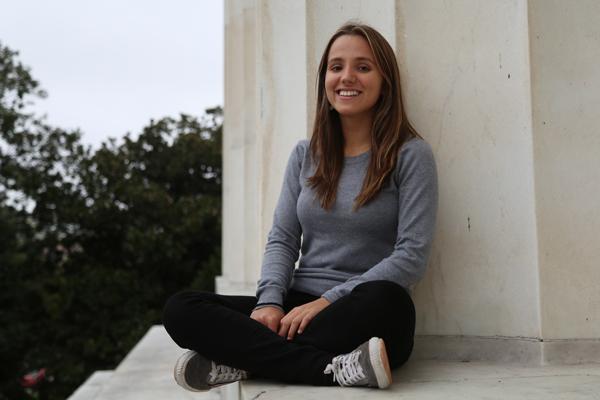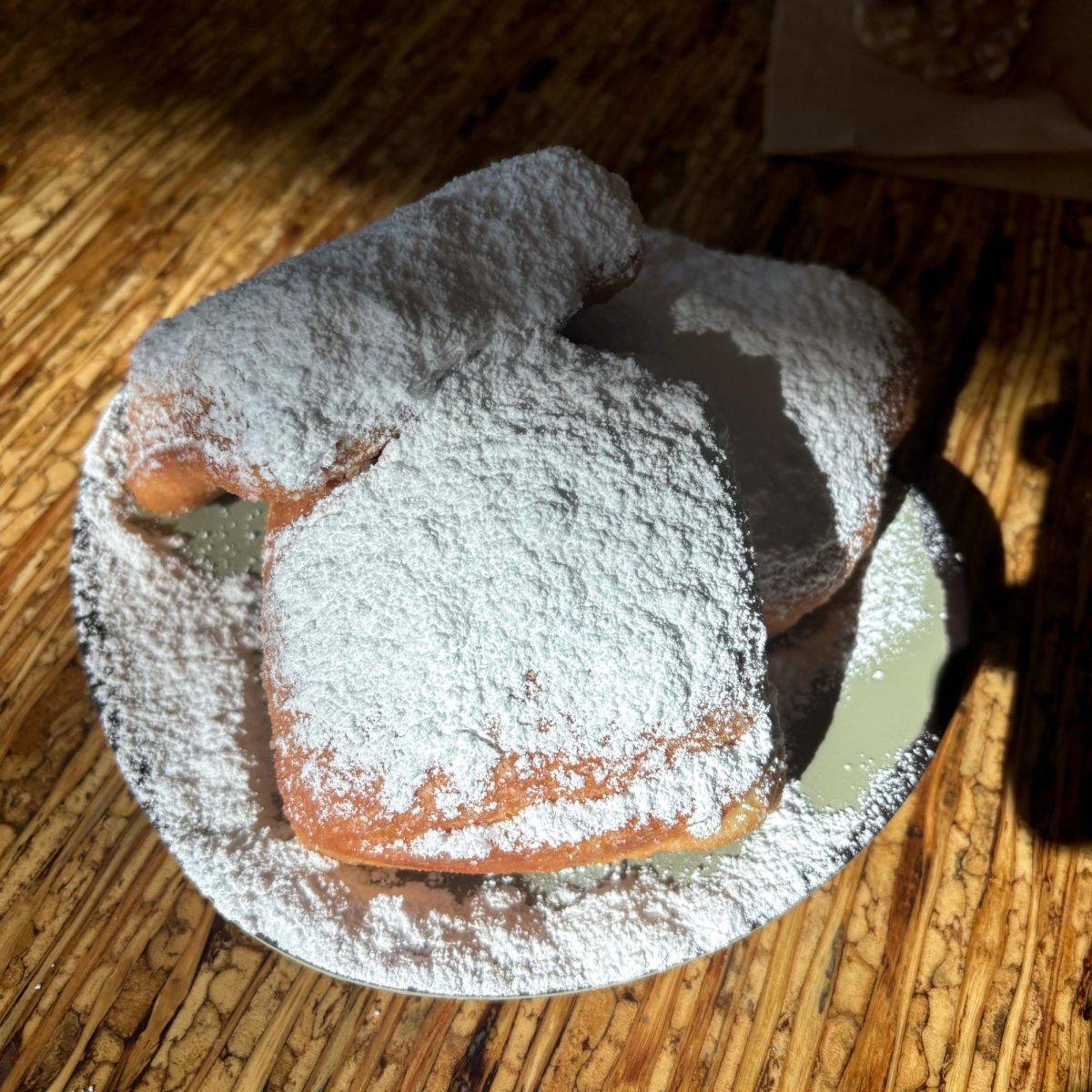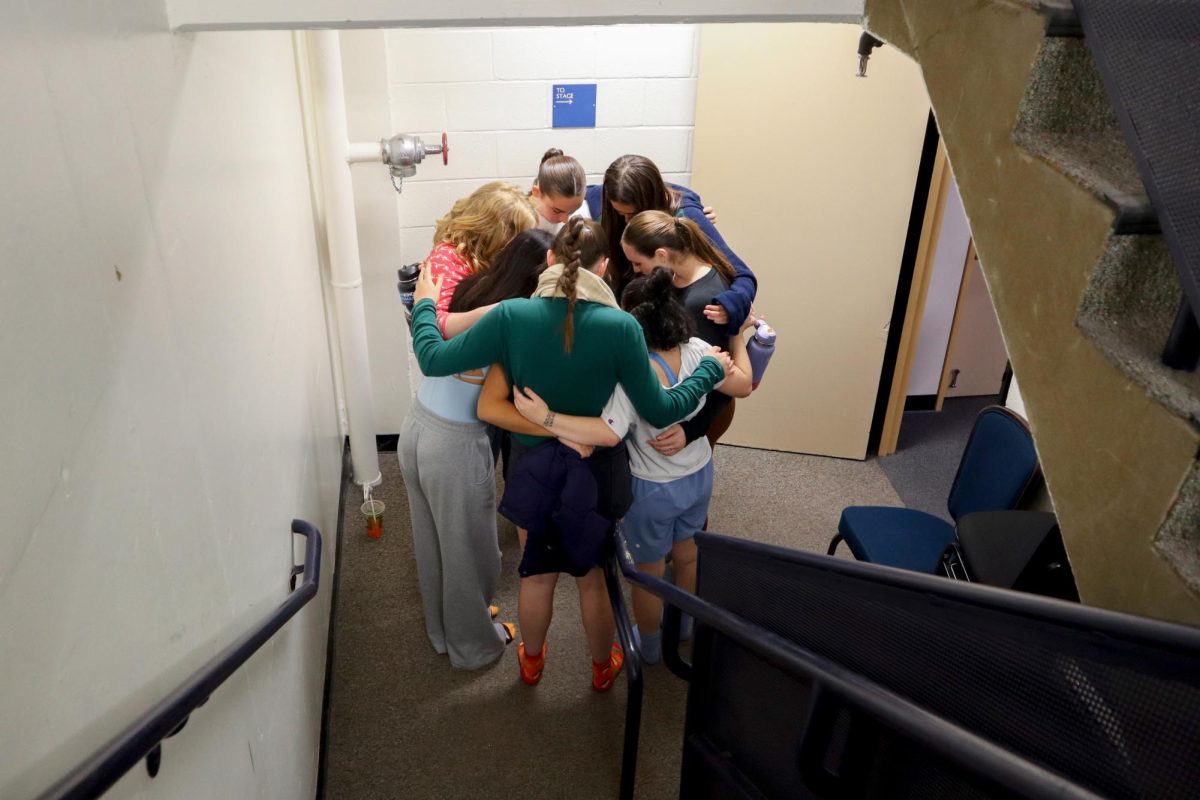Like many students on the most politically active campus in the nation, sophomore Judith Indalecio has a passion for U.S. politics.
She tuned into last Monday’s presidential debate between Republican presidential nominee Donald Trump and Democratic nominee Hillary Clinton, is a member of the GW College Democrats, interns for a lobbying group and is always up for a political conversation with her friends.
“They’re kind of tired of me,” she said.
But unlike most politically active students on campus, Indalecio cannot rock the vote this November. A native of Barcelona, and one of GW’s more than 1,000 undergraduate international students, Indalecio is experiencing an American presidential election for the first time.
Indalecio is hoping to use her background to bring a new perspective to this year’s presidential election by urging GW students to consider the international impact, she said.
“Keep in mind the whole world is watching,” Indalecio said. “The U.S. is a pretty big deal, and it also sets trends.”
Indalecio isn’t the only international student who thinks students who can vote should consider global ramifications before they hit the polls Nov. 8. Others said the election matters to them and the countries they are from, and they have found ways to get involved in politics, even though they can’t vote.
Kaajal Joshi, a sophomore from New Delhi and the undergraduate student involvement coordinator for the International Students Community, said GW voters should think about the candidates’ immigration and global security policies, because they will have major effects on international students and their families.
“This just keeps coming up in our conversations because GW is such a politically active school,” Joshi said. “These are questions that we at times do tend to ask our American friends. Guys you’re voting. Please keep us in mind when you vote. Keep our countries in mind when you vote.”
Paul Loeb, founder of the Campus Election Engagement Project, a nonpartisan organization devoted to encouraging students to get involved in national elections, said international students can provide perspectives U.S. students don’t often have.
Economic development and global poverty are just some of the issues that international students may think about differently, he said.
“Climate change affects everybody,” Loeb said. “The war and peace issue affects everybody.”
Though they won’t be able to cast ballots this November, Loeb said international students can volunteer to campaign for candidates or register other people to vote.
“They can’t vote, but they can do most other things,” Loeb said.
Allie Coukos, the director of public relations for the GW College Republicans, said the student group “encourages all students to participate” in activities, regardless of whether or not they are U.S. citizens.
“While they may not be able to vote, international students are more than welcome to attend our debate parties, attend student debates and participate in our campaign activities,” Coukos said in an email.
The College Democrats also hosts activities like campaign trips and phone banking sessions.
Elsa Katz, a sophomore from Paris, said she hasn’t gotten involved in U.S. politics directly but uses social media to engage with other students in conversations about the presidential election.
Katz said she has noticed more “animosity” between political parties in the U.S. compared to in France, where the political system encourages more positive exchanges and debates. In France, voters are more likely to be moderate or switch parties, she said.
She added that she has observed “intense” feelings from her friends and sorority sisters about this election’s candidates.
“It’s very different from France, where people are less politically passionate,” Katz said.
At one point during the election season, Katz said was taken aback to hear her friend say she “loved Hillary” in the middle of a conversation. In France, voting for a candidate is not synonymous with liking who they are, she added.
“It’s interesting to see that people here actually love the candidate they’re going to vote for,” Katz said. “They’re actually passionate about it.”






